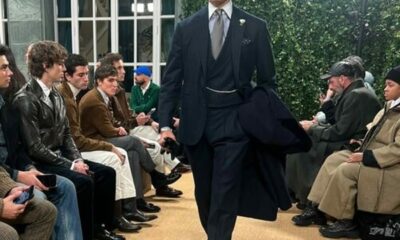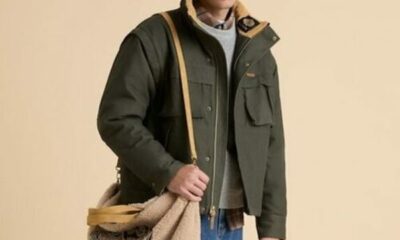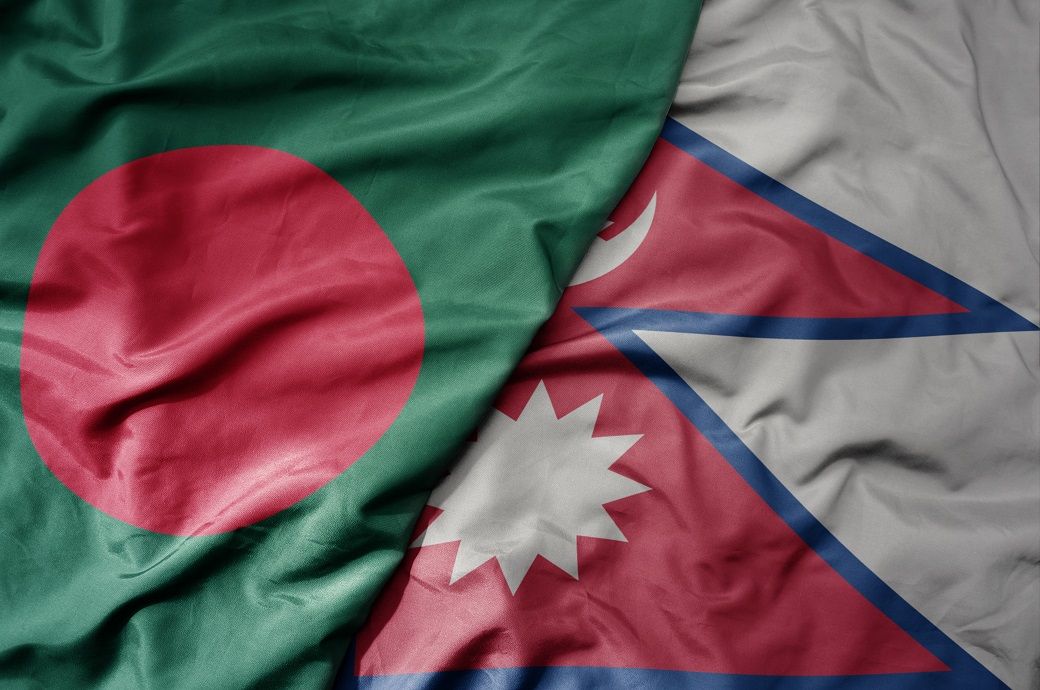Fashion
Marc Jacobs opens Joy pop up in Galeries Lafayette, Paris
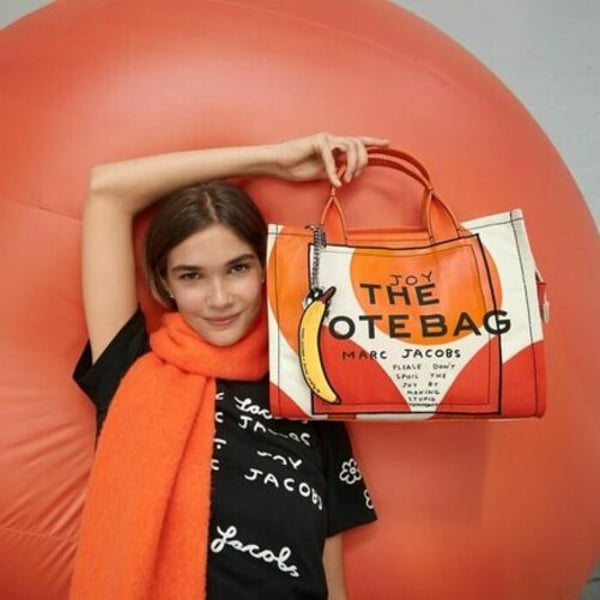
Published
October 17, 2025
Marc Jacobs on Thursday opened a fresh Joy pop up in Galeries Lafayette within its Haussmann flagship in Paris, presenting the latest instalment of an innovative rolling capsule project.
Customers entering the famed department store are immediately greeted by the bold, blue circular Joy space, finished off with large petals. Inside the 30-square-meter bud retail space, one finds a bright and bouncy Fall 2025 limited-edition capsule collection that plays on the intersection of art and fashion through visual storytelling and expressive design.
Underlining Marc Jacobs’ brand power: Galeries Lafayette devoted 12 windows and 42 flags on its façade to celebrate the four-week pop-up, which runs through to November 11.
This new space continues the season-long celebration of Joy, which includes collaborations with renowned artists David Shrigley, Derrick Adams, and Hattie Stewart.
Jacobs has a long and rich tradition of culture-defining creative collaborations- such as Murakami and Richard Prince during his tenure at Louis Vuitton – linkups that extend beyond the world of fashion. He continues this with Joy, as three distinctive voices in contemporary art delve into ready-to-wear, accessories, and signature bags.

Shrigley’s satirical wit channels an absurdity that sparks laughter; like his Joy version of the famous Marc Jacobs Tote, on which he writes: “Please don’t spoil the Joy by Making Stupid Comments.” Other totes are made of canvas covered the same bold floral blues and priced at €275.
Adams’ vibrant geometries celebrate colour and rhythm with some natty sweatshirts and T-shirts, priced at €155 and €55 respectively.
Stewart’s pop-surrealist florals and characters offer a burst of optimism, seen in skateboards and very cool psychedelic Converse sneakers. Footwear priced very competitively, like the whole capsule, at €130.
Extending Joy beyond the brand, Marc invited a circle of like-minded brands to interpret the campaign through their own iconic products. Besides Converse, participants include SHUT skateboards; Moleskine journals, with collectible box sets of premium Crayola adult creative tools; and Maxbone, with a range of luxe pet accessories. Upstairs in Galeries Lafayette, there is even a further second floor Joy pop up that includes a gumball machine.
Joy pop-ups have already popped up in New York, Tokyo, London, and Athens. After Paris, the next destination will be Düsseldorf.
Copyright © 2025 FashionNetwork.com All rights reserved.
Fashion
Bangladesh, Nepal agree to fast-track proposed PTA
Fashion
AAFA & other US industry groups urge renewal of AGOA & Haiti pacts
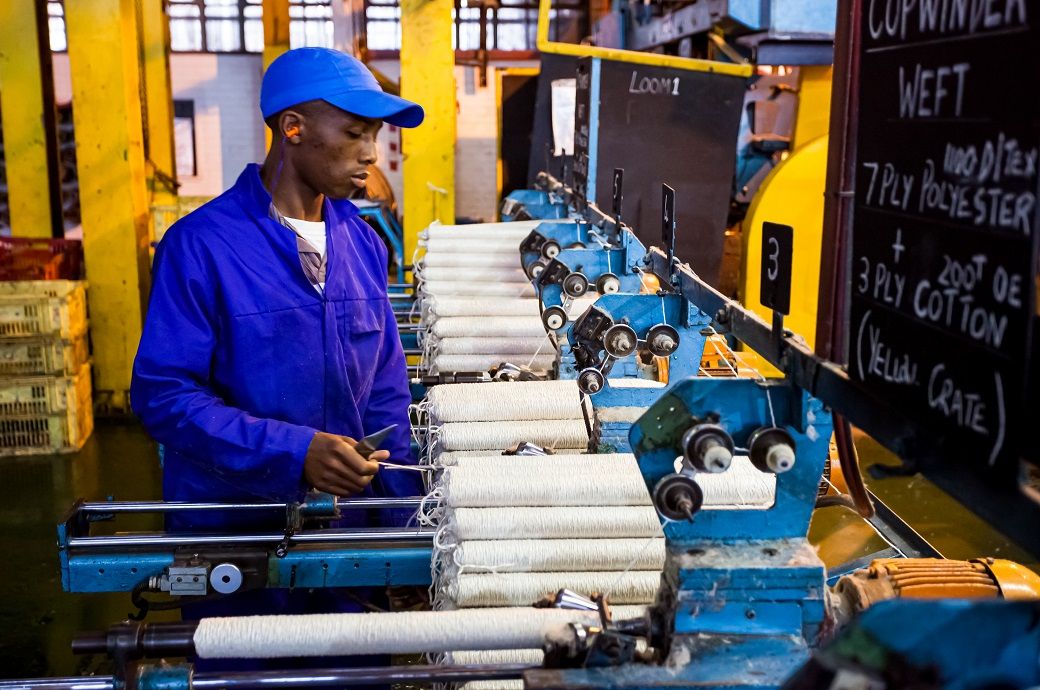
A coalition of the American Apparel & Footwear Association (AAFA) and other leading textile, apparel, footwear and retail associations has urged the US House of Representatives to pass legislation reauthorising key trade preference programmes for sub-Saharan Africa and Haiti.
A coalition of AAFA and other textile, apparel, footwear and retail groups has urged the US House to pass legislation reauthorising AGOA and Haiti HOPE/HELP.
The bills would retroactively extend the trade programmes for three years, backing US cotton and textile exports, helping diversify sourcing beyond China, and supporting about 3.6 million US workers.
In a joint letter, addressed to House Speaker Mike Johnson and Minority Leader Hakeem Jeffries, the groups called for passage of the AGOA Extension Act (HR 6500) and the Haiti Economic Lift Program Extension Act (HR 6504) on suspension.
The letter noted that the House Ways and Means Committee approved both bills last month with overwhelming bipartisan support. The proposed measures would retroactively renew the African Growth and Opportunity Act (AGOA) and the Haiti HOPE/HELP programmes for three years, providing certainty for US companies and stability for workers in sub-Saharan Africa and Haiti.
Industry groups said the programmes support American cotton and textile exports, help diversify sourcing beyond China, and directly support about 3.6 million US workers.
Signatories included the AAFA, the Footwear Distributors & Retailers of America, National Retail Federation, Outdoor Industry Association, Retail Industry Leaders Association, and the US Fashion Industry Association.
Fibre2Fashion News Desk (HU)
Fashion
Milano Moda Uomo: Ralph Lauren, the coolest classicism

Published
January 16, 2026
The house of Ralph Lauren very rarely stages menswear runway shows in Milan, which is a pity as its catwalk display this Friday was the coolest and cleverest display of menswear classicism we’ve seen in many moons.
The smoothest of shows too. Presented with polish inside Ralph Lauren’s European headquarters, a geometric Rationalist era jewel of a building. Guests- from Tom Hiddleston and Colman Domingo to Nick Jonas- imbibing biscuity champagne as they took their places on leather bench seats.
Opening with a score of looks from Polo, a rich selection of kicky, preppy ideas: red flannel shirts with turkey prints; Navajo graphic wool sweaters; snow crystal pattern cardigans; and even a brown three-piece Prince of Wales suit. All anchored by Alpine hiking boots or hyped-up L.L. Bean style waders; or accessorised by Black Watch tartan carpet bags.
Plenty of Western looks, from urban cowboy brown suede fringed jackets, worn by a model with an acoustic guitar on his back, to lace ties, rancher hats, and riding boots. Very Yellowstone in Lombardy.

Backed up by a great soundtrack- where Nina Simone’s Sinnerman followed Texas Sun by Khruangbin and Leon Bridges. Ideal for some bold and colourful motor-bike jackets that read: Ralph Lauren Racing.
As day shifted to evening, Scottish baronial chic made an appearance: from Clan Stewart red plaid tuxedos worn under a Count Dracula cape to a great black Grenadier guards military tunic worn with a black silk stock– un petit merci to Dior. Albeit seen on models sporting New York Yankees baseball caps.
“We had so many looks and ideas in this collection that it just seemed right to stage a show this week in Milan,” explained Andrew Lauren, sitting among the movie stars in the villa’s covered courtyard.

All worn by a highly diverse cast, from all the world’s continents. And, one could not help noticing that when he came to the two chalk stripe impeccable bankers, these were worn by a South and an East Asian.
Though there was clearly no deliberate political message, the very heterogeneousness of the cast was a reminder of how Ralph has always celebrated the diversity of America. Which, at a moment when ICE are clearly racially profiling citizens in the United States, made this show feel very powerful.
This is the melting pot America that Europeans love. Not the white supremacism currently being rammed down people’s throats.
Copyright © 2026 FashionNetwork.com All rights reserved.
-

 Tech4 days ago
Tech4 days agoNew Proposed Legislation Would Let Self-Driving Cars Operate in New York State
-

 Sports6 days ago
Sports6 days agoClock is ticking for Frank at Spurs, with dwindling evidence he deserves extra time
-
Sports1 week ago
Commanders go young, promote David Blough to be offensive coordinator
-

 Fashion6 days ago
Fashion6 days agoSouth India cotton yarn gains but market unease over US tariff fears
-

 Entertainment4 days ago
Entertainment4 days agoX (formerly Twitter) recovers after brief global outage affects thousands
-

 Fashion6 days ago
Fashion6 days agoChina’s central bank conducts $157-bn outright reverse repo operation
-

 Business1 week ago
Business1 week agoSoftBank reduces Ola Electric stake to 13.5% from 15.6% – The Times of India
-

 Sports6 days ago
Sports6 days agoUS figure skating power couple makes history with record breaking seventh national championship


